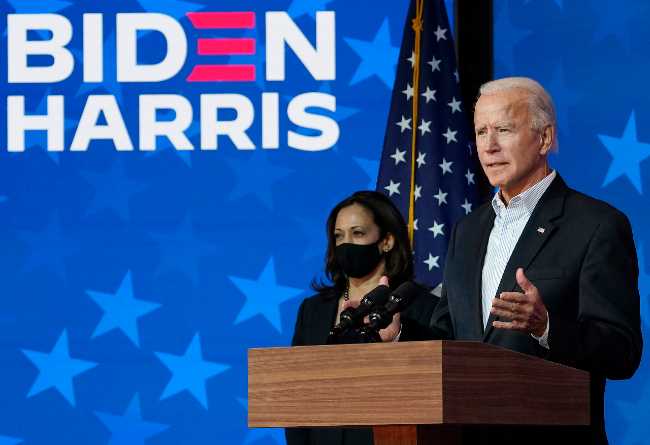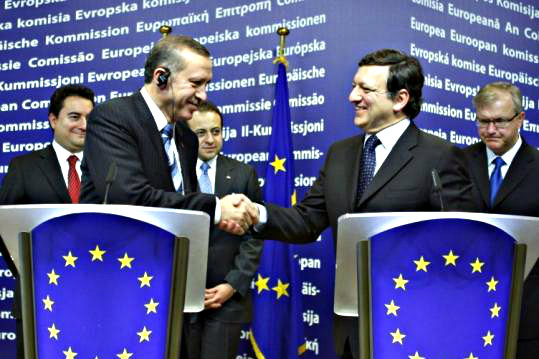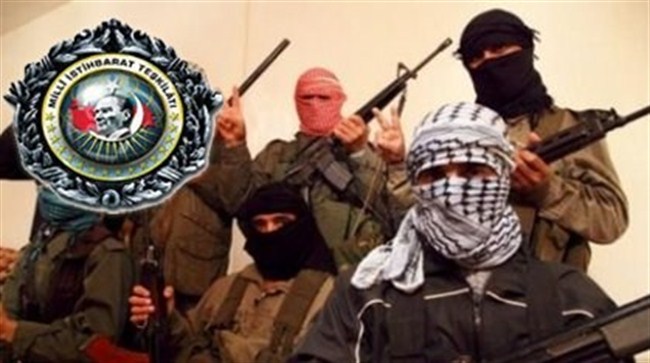Interview: Is Turkey a strong enough power in the Mediterranean to solve problems on its own?
Turkey has been trying to play a significant role right at the center of incidents and political developments in the Mediterranen for a while. It can be said that Turkey is also doing this at the cost of facing several threats to include direct confrontation with Israel and even Russia.
The administration has been receiving much criticism from opposition in this regard although this does not seem to have much impact on the government’s strategy.
Turkey is certainly to calm down and re-consider its capabilities to realize that it would not be wise (nor would it be acceptable) to put itself in a position to challenge multiple parties simultaneously.
Turkey should not allow itself to look at the magnificient economical (and fairly succesful political) performance it has achieved in the mirror of exaggeration. The reason is in case it did, it could lead to some fatal negativities in the international arena that Turkey might not be able to afford.
Below interview is shedding a light to this critical point and is well worth reading
Editor
Business Turkey Today
INTERVIEW
Turkey is no longer an emerging power but a solid European power, but it is not big enough to solve problems around it, as they are becoming even bigger with the Arab Spring, says Giles Merritt, a security expert. Its frustartion with the EU should not blind Ankara to the importance of remaining part of the international consensus, he adds.
Turkey must put aside its own irritation with the way it has been treated in its European Union accession bid, says Giles Merritt (R) speaking to the Daily News from the balcony of his office overlooking Brussels.As Turkey is becoming more influential, the problems around it are growing bigger too, according to a Brussels-based security expert.“Turkey is big but not big enough to solve all these problems on its own,” said Giles Merritt, the director of the think tank Security & Defense Agenda, cautioning that Turkey should not let its frustration with the European Union blind it to the need for international consensus to confront problems.
The uncertainties triggered by the Arab Spring were what led Turkey to agree, despite its initial hesitations, to host a radar system as part of NATO’s missile-defense shield plans, Merritt told the Hürriyet Daily News in a recent interview in Brussels.
Q: How does Turkey look from Brussels?
A: Self confident, increasingly rich, but increasingly troubled in terms of what its regional role actually is. There are now so many problems in Turkey’s neighborhood it would be simplistic to say that Turkey is a big regional power that can resolve them on its own.Problems are growing faster than Turkey is growing. Turkey is not the emerging power that it was 25 years ago. Now it is a solid European power. At the same time, the problems of the area are totally different. Twenty-five years ago, the Cold War was still going on, and all the relationships to the east of Turkey and around the Black Sea were still frozen. Everything was quite static. Now everything is much more volatile than before.Although Turkey is very big it is not big enough to handle all of these on its own. And I am not just talking about Syria, Iraq and relations with Israel. I am talking about the whole of the Caspian neighborhood, Ukraine is volatile too. We’ve got Western Europe, with its serious economic problems, at risk of pushing Turkey’s economy off balance too; if the eurozone crisis becomes really explosive, Turkish financial institutions will be very vulnerable as well.
Q: How do you see the likelihood of a military confrontation in the Mediterranean?
A: There is a difference to the Cypriot drilling issue and the Israel issue. There is a good history of damping down the tension over Cyprus. Turkish and Greek Cypriots on both sides know how far they can go without finding themselves in an irreversible crisis. I hope that the Cypriot issue is just a flare up. The track record is we’ve seen things get very nasty and then calm down.The Israel problem is much more serious. We have a confrontation between Turkish national pride and what the Israeli government sees as its own self preservation. There, it seems, we have a very difficult situation, because the Arab Spring is far from over. We just don’t know how things are going to change. It removed a lot of the old certainties from Israel’s relationships with Arab capitals.Most people in European capitals believed Turkey was playing an enormously big peacekeeping role in the Middle East. It was seen as an Islamic bridge between Europe and the Middle East. Now I think we are puzzled about what Turkey’s role is going to be since the stalemate with Israel looks difficult to break.
Q: Could there be an armed conflict in the Mediterranean between Turkey and Israel?
A: I don’t think there will be an armed confrontation but that does not make the prospect less alarming and dangerous. During all the years of the Cold War period, we had stability in the Middle East, a dangerous stability since there was no result to the peace process. Now with the revolutions sweeping across the Magreb, European governments and the U.S. are bearing in mind that this volatility is going to create first, an energy-security threat, and second, a new dimension to Islamic militancy. If we don’t have Turkey, the U.S. and Europe keeping calm, it is worrying how things will turn out. Turkey has been a pole of stability in the eastern Mediterranean for so long. It is now pursuing a very independent foreign policy. Now that it has an open and unresolved quarrel with Israel, all of these are unpredictable factors.Nobody has more admiration than me for the way Turkey has developed. But I don’t think Turkey can resolve any of these problems on its own. Turkey must put aside its own irritation with the way it has been treated in its EU accession bid. I can understand this irritation. But it should not blind Ankara to the importance of remaining part of the international consensus on where to go from here. The government’s rhetoric has been to say that Turkey is now big enough and strong enough not to have to listen to what other governments have to say. That will be a dangerous course.
Q: But don’t you think Turkey’s recent decision to host U.S. radar as part of NATO’s nuclear-defense plans shows it is aware of the importance of its alliance with the West? How was that decision perceived in Brussels?
A: It was very welcomed, especially at NATO, where the last few years have been difficult for the security and defense relationship with Ankara. Every time there has been a possibility for Turkey to block some course of action, it seems to have done so, even on rather banal and routine issues. The temptation has been to make life difficult. This mostly reflected Turkey’s irritation at the EU.
Q: How do you explain the fact that support for NATO has been decreasing in Turkey?
A: There are a number of reasons: The whole issue of northern Iraq, the impact on the Kurdish situation – all of that led to negative views. Americans were rather heavy-ended with their dealings with Ankara. Also, the Turkish public, like a lot of Europeans, is not quite sure what NATO is for now that there is no Soviet menace. Like the U.S., Britain and France, Turkey resents the freeloaders. All the NATO countries’ defense spending is going down and down. There are few countries with a serious commitment to carry the burden.At the height of the Cold War, NATO was the basis of Turkey’s foreign policy. At a time when Turkish politics were volatile, NATO was a [force for] stabilization, a door to the outside world. Now Turkey is different, it sees itself almost at the center of the eastern Mediterranean economy. It feels in this wonderful strategic position that gives Turkey a sense of autonomy in international relations
Q: Why do you think Turkey agreed to host the U.S. radar after all its initial hesitations?
A: I imagine that when ministers sat down to make the decision to host the radar, the “Arab Spring” was written in front of [Foreign Minister Ahmet] Davutoğlu and his colleagues. It should have been self-evident to those sitting in Ankara that it is not just Iranians they have to be worried aboutIt is the totally unpredictable turmoil in Arab politics, no one being able to tell you where the politics of these countries will be going, and the threat assessments you make on these different countries. I understand the missile shield should be pretty effective on medium-range technology missiles, not the sophisticated stuff but the sort of stuff it is not unimaginable some Islamic government not yet born, some country around the Arab crescent might acquire. That must have been a pretty important factor.Turkey felt that today’s threats may not be tomorrow’s threats. There is a big curve around the northern and southeastern flanks of Europe, from the Caucasus to the Middle East, where nobody knows what might happen. [They must have said] if technology to defuse the missile threat is available, let’s use it.‘NATO is no longer an alliance of all for one and one for all’The NATO operation in Libya has shown that Europe’s neglect of its defense capabilities has become dramatic, according to Giles Merritt, the director of the Brussels-based think tank Security & Defense Agenda.“We could not, on our own, mount even a limited offshore operation against a not-particularly well-equipped small army of a comparatively small country. Without American help and air surveillance, we would not have been able to mount an operation [in Libya],” Merritt said. “It showed in stark televised terms how weak Europe has become in terms of power projection. We desperately needed American support.”The operation also showed that NATO is no longer an alliance in the sense it was 60 years ago, he said, adding that NATO has instead become a political mechanism of convenience. “It is there for when Americans want Europeans for political cover; Afghanistan is a good example of that,” he said. “And Europeans used it to ask for U.S. support for the Libya operations.”
September 23, 2011
INTERVIEW: BARÇIN YİNANÇ
SOURCE: HURRIYET DAILY NEWS
Who is Giles Merritt?Giles Merritt is the director of Security & Defense Agenda, or SDA, the only dedicated security and defense think tank in Brussels. Formed in 2002 under the patronage of former NATO secretary-generals Javier Solana and George Robertson, it brings together experts and policymakers from EU institutions, NATO, national governments, industry, the media, think tanks, academia and civil society.Merritt is among Brussels’ most influential commentators on EU issues and has been a pioneer of the public-policy debate on Europe’s future in his work both in journalism and at think tanks. He is also the head of the SDA’s sister think tank Friends of Europe, whose debates and reports cover a broad spectrum of non-defense topics of interest to EU-level policymakers, researchers and stakeholders. In addition, Merritt is the editor of the policy journal Europe’s World, launched in 2005 as an EU-wide platform for debate.From 1968-83, Merritt was a correspondent for the Financial Times and reported from London, Paris, Belfast/Dublin and Brussels.





